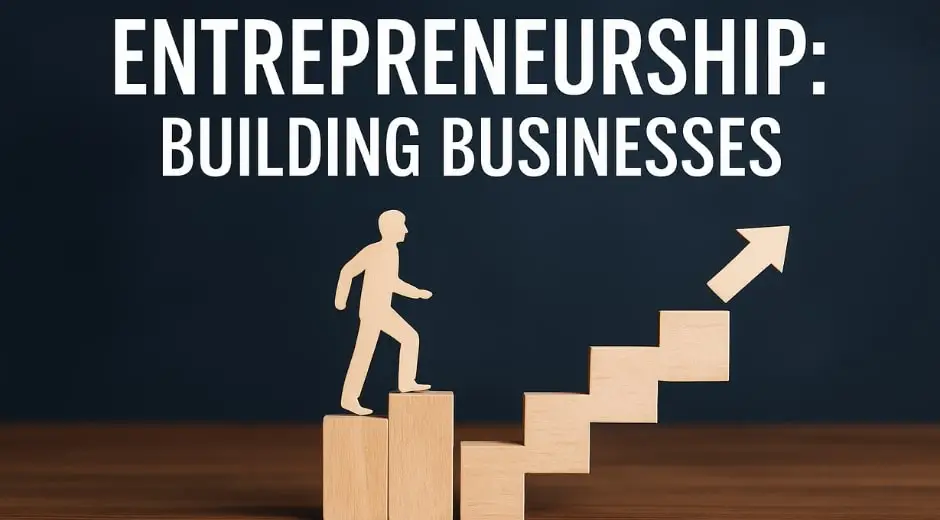How Young Entrepreneurs Are Redefining Success in 2025
Success no longer looks like it did a decade ago. In 2025, a new generation of entrepreneurs—driven by Gen Z’s creativity, purpose, and digital fluency—is rewriting the rules of business. For these young innovators, success isn’t measured only by financial gain but by impact, authenticity, and personal fulfillment. They’re building ventures that align with their values, harnessing technology responsibly, and prioritizing balance alongside ambition.
1. The Rise of Purpose-Driven Entrepreneurship
The most defining feature of young entrepreneurship in 2025 is its focus on purpose. Instead of chasing rapid profits, new founders are building businesses that solve real-world problems—addressing climate change, mental health, and social inequality. Platforms such as Gaming News Head highlight how even the gaming industry has seen a shift toward community-based models that emphasize inclusivity and education.
This generation’s mindset reflects a deeper understanding of corporate responsibility. They believe that business success and positive impact are not mutually exclusive—but rather, mutually reinforcing.
2. Redefining Wealth: From Money to Meaning
For many Gen Z founders, wealth is no longer just financial—it’s emotional, social, and experiential. A growing number of entrepreneurs are prioritizing quality of life over endless hustle. Success means flexibility, mental well-being, and creating value that lasts. Publications like Style Radar Point showcase this evolution across creative industries, where young leaders balance aesthetic innovation with sustainable business ethics.
In 2025, the narrative of “work until you burn out” has been replaced by “work with intention.” This redefinition of success is fueling a cultural and economic shift across every sector.
3. Tech Empowerment and Ethical Innovation
Young entrepreneurs are digital natives. They leverage AI, blockchain, and Web3 tools to scale faster and smarter—but they also understand the ethical implications of technology. For them, innovation isn’t just about disruption; it’s about integrity.
AI-driven platforms allow micro-entrepreneurs to automate marketing, streamline operations, and reach global audiences. But unlike earlier tech booms, today’s innovators emphasize transparency and ethical design—ensuring users trust the systems they build.
4. Collaboration Over Competition
The 2025 startup culture celebrates collaboration more than competition. Entrepreneurs are forming partnerships across industries and geographies to co-create impact-driven ecosystems. Communities and incubators have become more open-source and supportive, encouraging mentorship, shared resources, and collective growth.
Platforms like Taste Flavor Book even draw parallels between the collaborative spirit of the culinary world and modern entrepreneurship—both thrive on sharing ideas, experimenting with new combinations, and learning from feedback.
5. The Hybrid Entrepreneur: Balancing Passion and Practicality
Many young entrepreneurs are embracing hybrid business models—combining creative pursuits with scalable income streams. A designer might launch a digital course; a software engineer could start a sustainable fashion brand. These multidimensional careers reflect a growing desire to merge art, technology, and commerce without compromising individuality.
In this hybrid age, success comes from agility—the ability to pivot quickly, adapt to change, and evolve in step with technology and market needs.
6. The Power of Authentic Leadership
Gone are the days when entrepreneurs had to appear invincible. Young leaders in 2025 lead with vulnerability and transparency. They talk openly about failure, mental health, and the challenges of building something from scratch. Authentic leadership has become their competitive advantage.
This transparency builds trust among customers, investors, and employees alike. The result? A new standard of leadership that prioritizes humanity as much as profitability.
7. Social Impact as Core Strategy
Social entrepreneurship has matured beyond trend status—it’s now a defining pillar of modern business. Young founders integrate sustainability, inclusivity, and ethical sourcing into their DNA from day one. Whether it’s renewable energy startups or inclusive tech ventures, these entrepreneurs recognize that impact and growth can coexist.
In 2025, the businesses that thrive are those that care—not only about customers but about the planet and the communities they serve.
8. Redefining Success Metrics
Success metrics have evolved beyond revenue charts and investor rounds. Young entrepreneurs track social impact, employee satisfaction, and community engagement alongside profits. This holistic view of success promotes resilience and longevity.
Entrepreneurs who focus on people first often build stronger brands and more loyal followings—proof that success measured through human value endures far longer than quarterly gains.
9. The Global Mindset of 2025
Unlike previous generations, today’s young entrepreneurs think globally from the start. With access to remote talent, borderless markets, and digital infrastructure, they’re designing ventures that scale across cultures. Their products reflect diversity, inclusion, and accessibility, appealing to a worldwide audience.
This global mindset not only broadens opportunity but fosters empathy—a key component of leadership in an interconnected economy.
10. What the Future Holds
Looking ahead, young entrepreneurs will continue to influence how the world defines achievement. By merging purpose with performance and empathy with innovation, they’re proving that the next era of business will be measured not by who grows fastest, but by who grows responsibly.
In a world hungry for authenticity, young visionaries are redefining what it means to win—and reminding us that real success is built on meaning, not metrics.
Conclusion: A New Era of Purpose and Prosperity
As we step deeper into 2025, one thing is clear: the next generation of entrepreneurs isn’t just building businesses—they’re building movements. Their vision transcends profit, aiming to inspire change, empower communities, and balance ambition with empathy. For them, redefining success isn’t rebellion; it’s evolution.
If the past was about competition, the future is about contribution. The young entrepreneurs of 2025 are leading us toward an economy where success is measured in impact, creativity, and connection—and where prosperity and purpose finally align.
Want to explore how modern entrepreneurship is evolving? Visit our 2025 Startup Trends Guide for insights into innovation, leadership, and sustainable growth.
Further Reading
Simple Entrepreneurship

Cash Management Habits Every Growing Business Needs
Cash Management Habits Every Growing Business Needs

Process Automation Tools That Save Time and Reduce Errors
Process Automation Tools That Save Time and Reduce Errors

How Team Culture Drives Long Term Business Success
How Team Culture Drives Long Term Business Success

Cost Control Methods That Improve Profit Without Cutting Growth
Cost Control Methods That Improve Profit Without Cutting Growth













